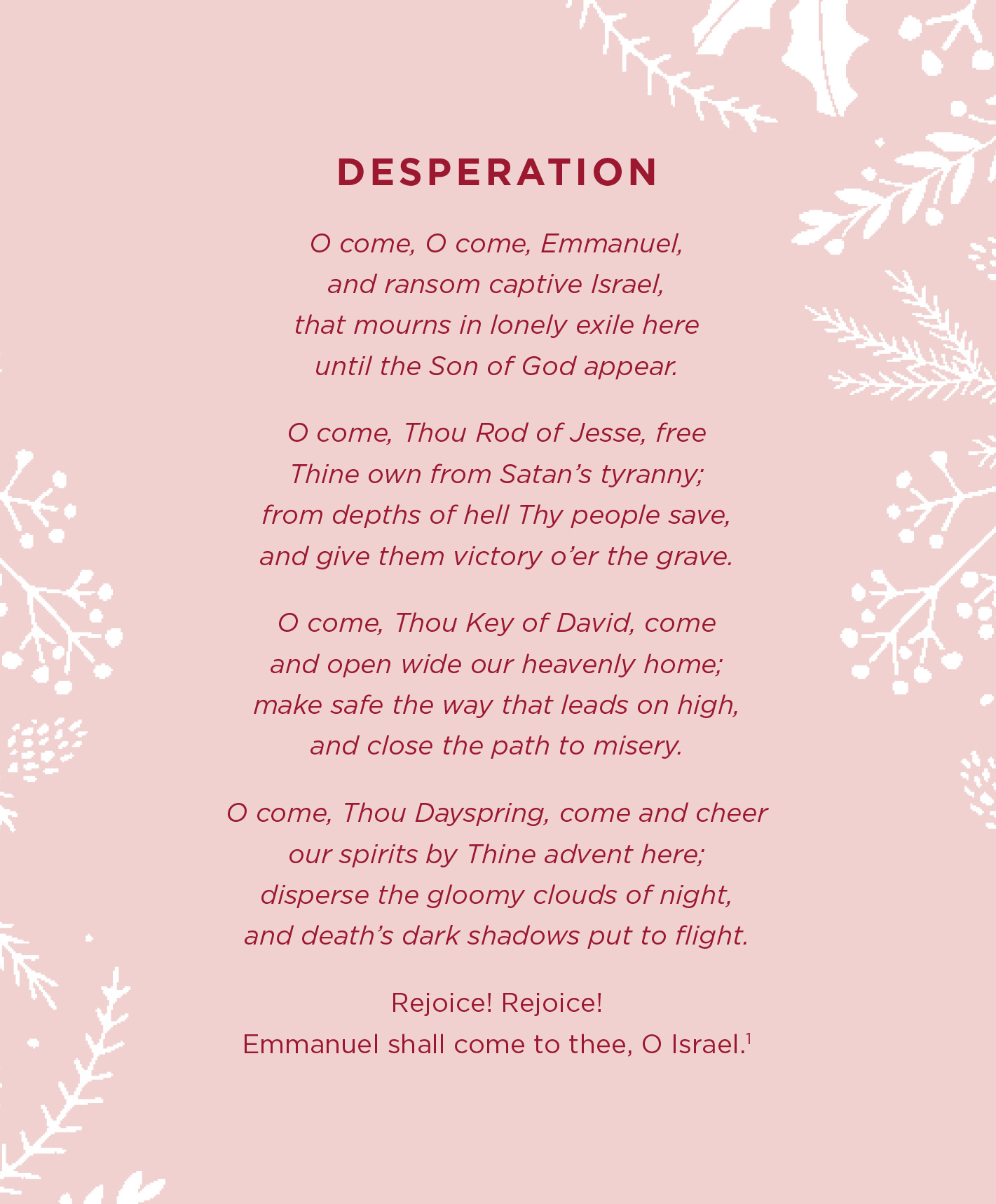Born a Child and Yet a KingVzorec


Day 3: Christmas Mourning
Seeing the word joy in today’s Scripture, with the exuberant exclamation point after it, brings to mind so many carols. There’s Isaac Watts’ classic,
Joy to the world! The Lord is come.
And then there’s the German carol “While by the Sheep We Watched at Night,” which, as you may recall, surges into that echoed refrain:
How great our joy! Great our joy!
Joy, joy, joy!
That’s truly what Christmas should—and does—evoke in us. Joy!
But joy, in order to be real joy, requires a suitable counterweight. It must stand in glorious contrast to something utterly bleak and hopeless, something totally bereft of joy. And the joy of Christmas does exactly that. It shines against a backdrop of banishment. Our sins had alienated us from God, leaving us no reason to expect a rescue. We were alone and left for dead.
“Remember,” said Paul the apostle, “that you were at that time separated from Christ,” that you once lived with “no hope and without God in the world” (Eph. 2:12). The experience of “captive Israel” in Babylon—overwhelmed with misery, living through a soul-crushing loss that provided no prospect for joy—is the experience of every one of us without Jesus. As the writer of “O Come, O Come, Emmanuel” phrased it, we are a people
that mourns in lonely exile here until the Son of God appear.
And we must never forget that lonely misery. True joy depends on our remembering it and acknowledging that our sin is a separator. It once separated us from God, and even now, it can separate us from experiencing Him as fully as He desires. Only when we face that reality can we understand the joyful reality of the gospel. As Jesus said, “Blessed are those who mourn, for they shall be comforted” (Matt. 5:4). Or as James said, in words that would otherwise make no sense at all, “Let your laughter be turned to mourning and your joy to gloom” (James 4:9).
Because joy doesn’t only come “with the morning” (Ps. 30:5), as David said. Joy also comes from our mourning, from the stark awareness that our sin has never been and will never become excusable or harmless, that it represents our all-too-willing part in hammering our Christ to His cross.
So we must never be dulled by the sweet nothings of sin’s deception but rather stay awakened to its gravity even as we open our arms to its remedy. Real joy—Christmas joy—is the joy of knowing He can “comfort all who mourn” to give us a beautiful headdress instead of ashes, the oil of gladness instead of mourning, the garment of praise instead of a faint spirit. (Isa. 61:2–3)
Only when we receive that gift can we truly live into the carol’s invitation:
Rejoice! Rejoice!
Not because He’s swept our sins under the rug as if they never existed but because He’s buried them in His love to keep them from costing us everything.
Prayer
You, Lord, are my reason for joy—not the pleasantness of my relationships, not the agreeability of my circumstances, not the state of my resources, not the bright prospects of my future. And lest I be tempted to make my joy dependent on anything else but You, grant me a spirit of heartfelt repentance today, showing me that real joy comes from how You rescue me from myself.
Keep Reading
Ezra 9:6–9
“Our God has not forsaken us in our slavery.” (v. 9)
Psalm 30:8–12
“You have turned for me my mourning into dancing.” (v. 11)
John 16:19–24
“You will be sorrowful, but your sorrow will turn into joy.” (v. 20)
Consider
Why do you think we resist the biblical call to sober-mindedness and solemnity? What would be different about our joy if it grew out of the full recognition of our sin and forgiveness?
